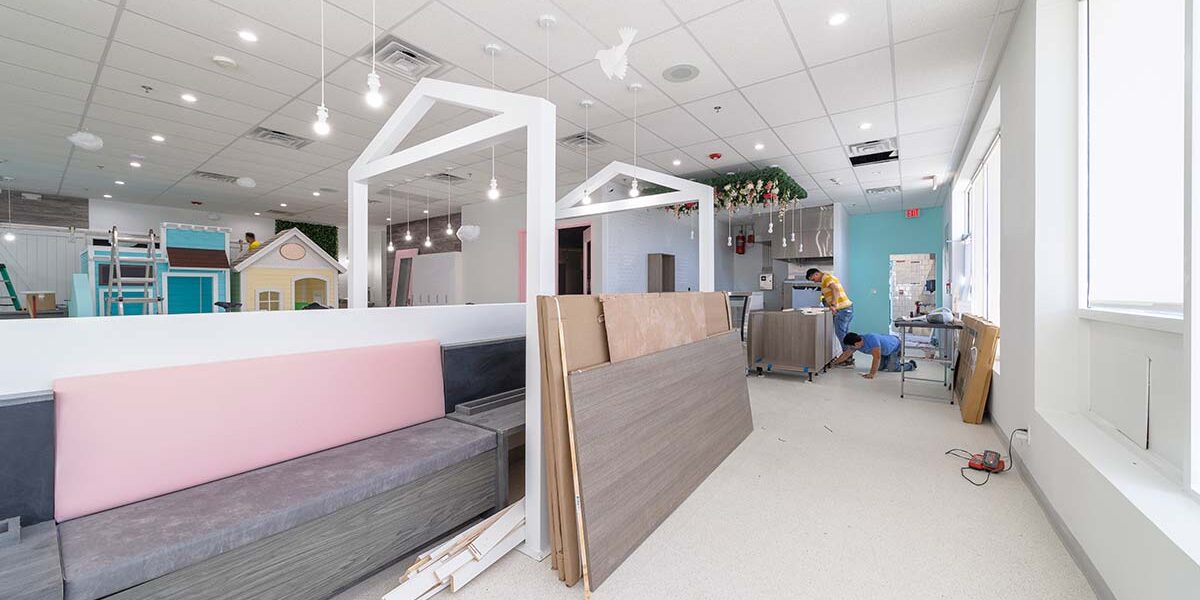The “perfect storm” of current economic pressures – including inflation, energy prices, supply chain uncertainty and shortages of goods, materials and labour – presents a number of well-documented challenges for occupiers in the retail and leisure sector, particularly when it comes to fitting-out new premises.
In this blog post, two of our specialists in the retail and leisure team, partner Ruth Griffin and legal director Kay Desai, consider the challenges this creates for retail and leisure occupiers that they are currently seeing in 2023.
1. Negotiations with landlords – Commercial deals being revised
Where landlords / building owners are undertaking:
- CAT A works (basic operational fit-out including installation of mechanical and electrical services, finished internal walls, raised access flooring); or
- CAT A+ works (known as “Plug and Play” since it expands upon CAT A to create functional space which tenants can begin using immediately, including e.g. fitted kitchens, meeting rooms, breakout spaces, power, IT infrastructure and WCs – although it does not typically include branding elements),
we are supporting clients with requests from landlords/developers to revise previously agreed commercial deals in light of rising costs.
Practical thoughts: Check the contract
In circumstances where landlords are pushing occupiers to renegotiate commercial deals that have already been agreed, occupiers need to carefully consider the terms of the contract they have entered into. These may include checking the definition and the specification of “landlord’s works”, and considering whether the landlord has used its “reasonable endeavours” (assuming this is the applicable standard) to procure practical completion of the landlord’s works by the relevant date. Tenants should also think carefully about their strategic imperatives, for example, is it a property one can forego if the ultimate outcome of not compromising commercially is an insolvent developer?
2. Increased construction costs
Retail and leisure occupiers normally carry out the CAT B fit-out themselves as it typically includes all works required to shape the interior space, in accordance with the client’s specifications, into a fully-operational workplace to meet their specific, well-established needs, based on a tried and tested ‘solution’.
Inflation, supply chain shortages and the knock-on increase in construction costs mean that all categories of fit-out are becoming more expensive – sometimes prohibitively so. With forecasts predicting that inflationary pressures will continue for the remainder of 2023, there is a delicate commercial balance to be struck between:
- the high cost of fit-out plans; and
- the risk of even higher construction costs and longer supply chains if such plans are delayed.
Practical thoughts: Revaluate your template specifications
Where occupiers have a template for their CAT B fit-out works – but in circumstances where the template is no longer affordable – it may be necessary to re-evaluate what they want their fit-out to achieve and consider making adjustments in line with affordability in the current market.
3. Increased energy costs
Soaring energy prices as a result of the Ukraine-Russia conflict further expose both owners and occupiers to cost uncertainty, which self-evidently makes it harder to run their businesses.
Some occupiers are investigating ways to reduce energy costs e.g. turning off fridges at night or only operating on days when office workers are likely to be in offices. Whilst some occupiers may have secured capped energy contracts, there is going to come a time when those contracts come to an end.
Practical thoughts: Sustainability
Mitigating the environmental impact is of increasing importance across all sectors and can provide solutions to increased energy costs. While higher upfront costs will be incurred if a fit-out is to achieve a third party sustainability certification (such as the BREEAM certification), this will usually lead to costs savings in the longer-term. A sustainable fit-out will typically result in gains in efficiency and therefore lower operating expenditure and running costs.
If you have any questions about the topics raised in this blog post, please get in touch with Ruth Griffin or Kay Desai.
About the author(s)
Ruth Griffin is a partner specialising in construction and engineering transactional work.

